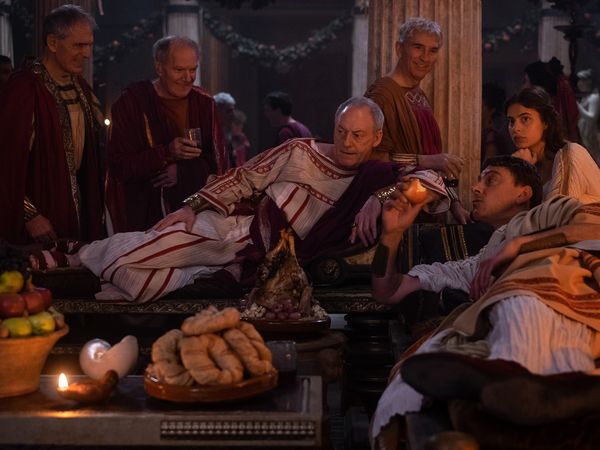Domina (TV Series 2021–2023)

Domina is a captivating historical drama series that aired from 2021 to 2023, exploring the intricate and often tumultuous world of ancient Rome through the eyes of a powerful woman. Created by Simon Burke, the show delves into the life of Livia Drusilla, the ambitious and politically savvy wife of Emperor Augustus. With its rich storytelling, complex characters, and lush production design, Domina offers a fresh perspective on a time often dominated by male figures.
Set in the turbulent backdrop of the Roman Empire, the series follows Livia’s journey from a young woman in a patriarchal society to a formidable political player. The narrative begins with her early life, showcasing her intelligence and resilience as she navigates family dynamics and societal expectations. As Livia marries Augustus, portrayed by Matthew McNulty, she quickly learns the intricacies of power and manipulation in a male-dominated world. The show highlights her strategic mind and determination to secure her family’s legacy, ultimately positioning her as a key influencer in Roman politics.

The character of Livia, played by the talented Kasia Smutniak, is portrayed with depth and nuance. She is not merely a supporting figure in her husband’s story; instead, she emerges as a central character whose ambitions and desires drive much of the plot. The series skillfully portrays her internal struggles, as she grapples with love, loyalty, and the ruthless nature of political life. Livia’s relationship with Augustus is complex, marked by both affection and rivalry, as each seeks to consolidate power in their own way.

Domina also places a strong emphasis on the roles of other women in ancient Rome, showcasing characters who defy societal norms and challenge the status quo. The series introduces a diverse cast of female figures, each with their own ambitions and stories. This focus on women’s experiences in a historical context adds richness to the narrative, allowing viewers to see the multifaceted lives of women during a time when they were often marginalized.

The cinematography and production design of Domina are particularly noteworthy, capturing the grandeur and brutality of ancient Rome. The visually striking sets, costumes, and attention to historical detail immerse viewers in the era, creating a vivid backdrop for the unfolding drama. The series does not shy away from depicting the darker aspects of Roman society, including political intrigue, betrayal, and violence, thereby providing a realistic portrayal of the time.

The writing in Domina is sharp and engaging, weaving together historical events with compelling character arcs. The dialogue reflects the tensions and power struggles inherent in the story, showcasing the strategic maneuvering required to survive and thrive in such a ruthless environment. The pacing of the series allows for both intense dramatic moments and quieter, character-driven scenes, creating a balanced narrative that keeps viewers invested.
Critically, Domina has been praised for its innovative approach to historical storytelling. By centering the narrative around a powerful woman, the series offers a refreshing take on a genre often dominated by male perspectives. It challenges traditional representations of women in history, presenting them as active participants in the political landscape rather than mere bystanders.
In conclusion, Domina is a thought-provoking and visually stunning series that reimagines the narrative of ancient Rome through a female lens. With its strong character development, intricate plotlines, and attention to historical detail, the series stands out as a significant contribution to the genre of historical drama. It invites viewers to reconsider the roles women played in shaping history and highlights the enduring relevance of power, ambition, and resilience in any era. As Livia Drusilla navigates the complexities of her world, audiences are drawn into a compelling tale of survival, ambition, and the quest for influence, making Domina a must-watch for fans of historical narratives.











